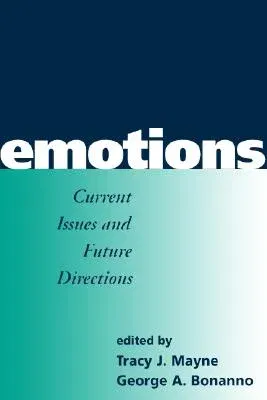Emotions: Current Issues and Future DirectionsHardcover, 3 January 2001

Temporarily out of stock
Free Delivery
Cash on Delivery
15 Days
Free Returns
Secure Checkout

Part of Series
Emotions and Social Behavior
Part of Series
Emotions & Social Behavior (Hardcover)
Print Length
421 pages
Language
English
Publisher
Guilford Publications
Date Published
3 Jan 2001
ISBN-10
157230622X
ISBN-13
9781572306226
Description
Product Details
Book Format:
Hardcover
Date Published:
3 January 2001
Dimensions:
22.86 x
15.24 x
3.18 cm
ISBN-10:
157230622X
ISBN-13:
9781572306226
Language:
English
Location:
New York, NY
Pages:
421
Publisher:
Weight:
766.57 gm